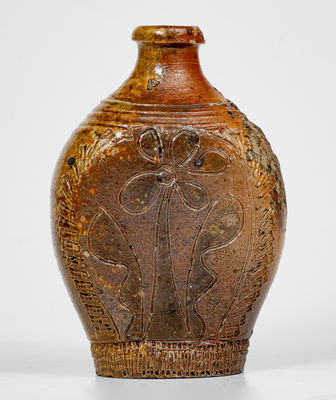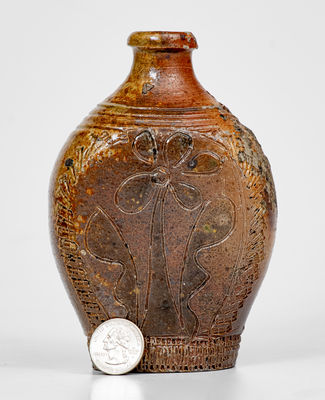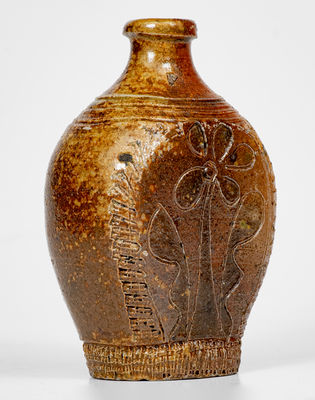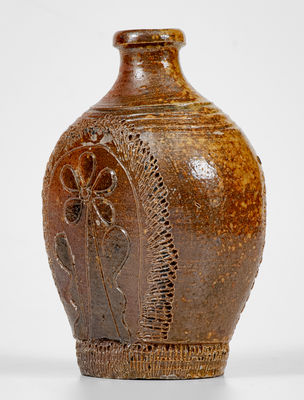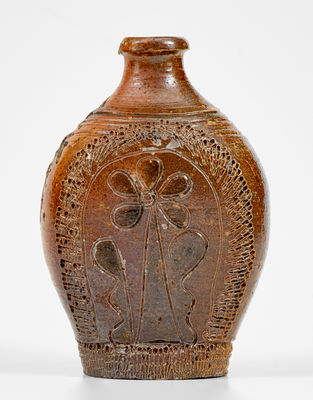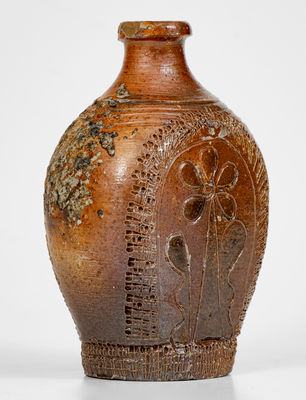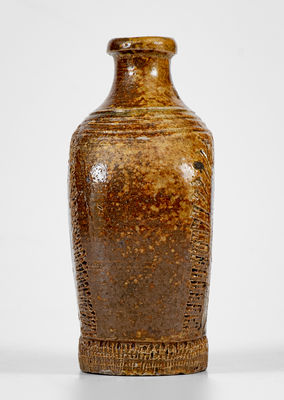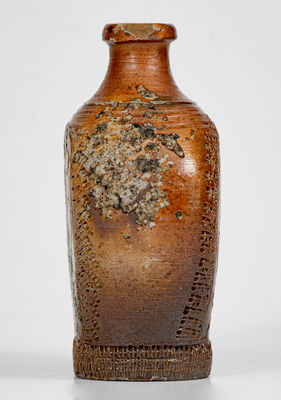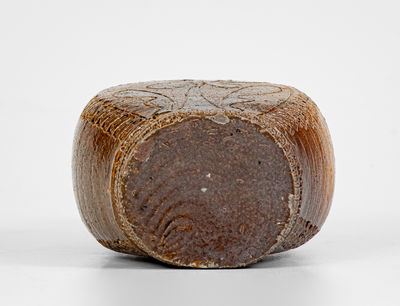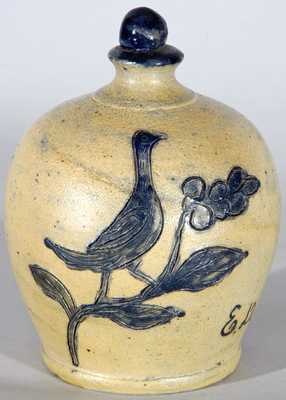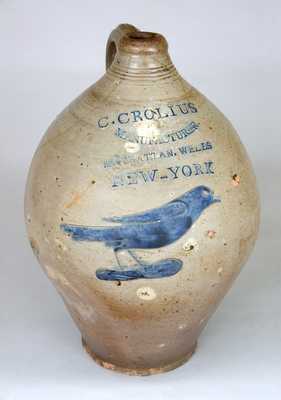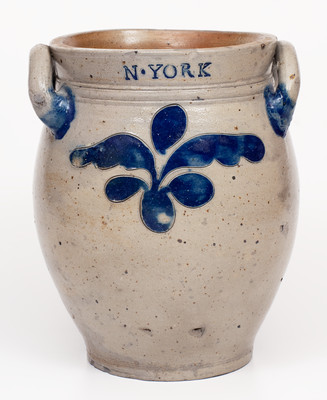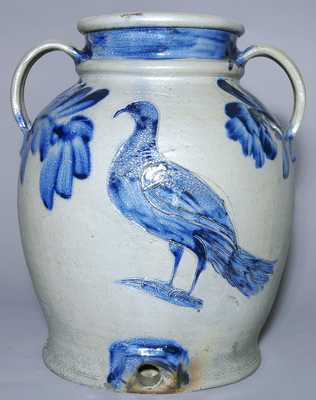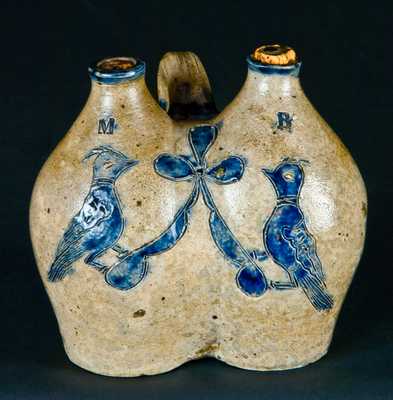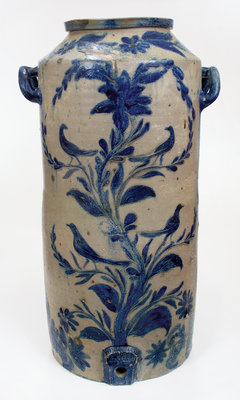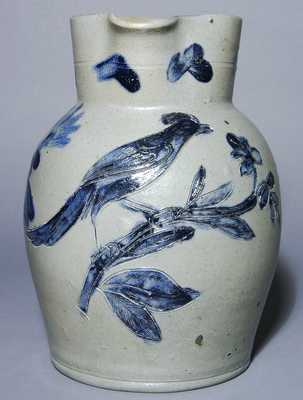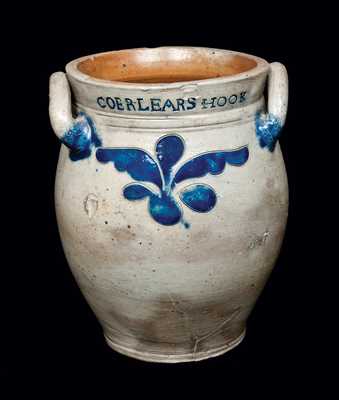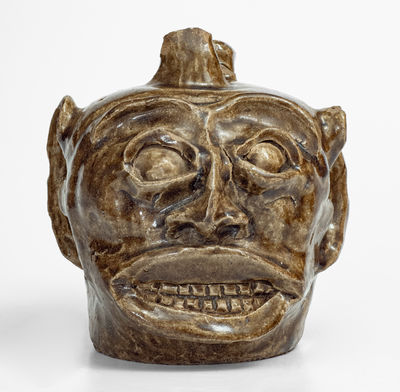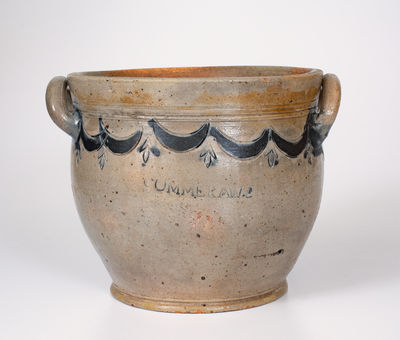Exceedingly Rare and Important Stoneware Flask with Profuse Incised and Impressed Decoration, attributed to the Crolius Family, Manhattan, NY, second or third quarter 18th century, wheel-thrown, four-sided flask with flattened front and reverse, heavily-tooled shoulder, and semi-rounded mouth; decorated on the front and reverse with an incised and cobalt-highlighted design of a flowering plant with scalloped leaves. Base of flask and area surrounding the incised decoration features profuse stamping formed from a small gridded rectangle. Salt-glazed surface. Among the earliest examples of American stoneware to ever come to auction, this work's combination of freehand incising and stamped decoration link it to the craft's emergence in Manhattan during the second quarter of the 18th century. A four-sided tea canister, lot 93 in Crocker Farm's November 3, 2018 auction, was clearly made by the same potter as this flask; it bears similar stamped decoration accompanying incised flowers that appear to have been rendered by the very same hand. Moreover, related juxtaposition of profuse stamping and freehand incising can be noted on the iconic William Crolius heart-shaped inkstand, dated 1773, in the collection of the Metropolitan Museum of Art in Manhattan, NY. This William Crolius, son of the William Crolius who immigrated from Germany to Manhattan in the first quarter of the eighteenth century, is the man who enslaved--but later freed--the family of people that included a young Thomas W. Commeraw, manumitted when he was approximately eight years old. In Commeraw's Stoneware: The Life and Work of the First African-American Pottery Owner, Brandt Zipp notes the close relation between the aforementioned canister and the Met's iconic inkstand, stating that it "was probably made on the same property that once housed young [Thomas Commeraw] and his family" (Zipp, pg. 42)--that property now being part of the Metropolitan Correctional Center in lower Manhattan. The same could be said for this remarkable flask, one among the most historically significant American ceramic works that we have offered. Literature: For related treatments and decorative elements found on Crolius and Remmey family sherds, dating circa 1720-1765, see Meta F. Janowitz, "New York City Stonewares from the African Burial Ground," Ceramics in America 2008, figs. 28, 33, 36, 37, 40, and 41. Essentially as-made condition. Kiln residue to shoulder on one undecorated side. A shallow in-the-firing chip to spout. Minor in-the-firing surface chipping to shoulder on one decorated side. Very minor chipping to bottom edge. H 5 3/4".

